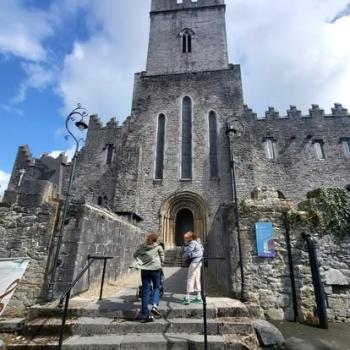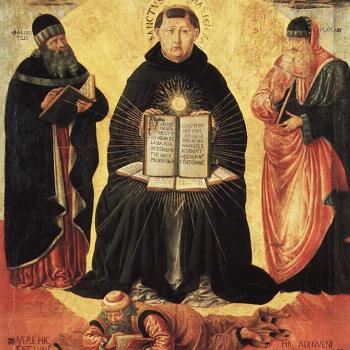We want to pray to but who has the time?

Were busy, tired, and over extended in our commitments
To work, family, friends and more.
But if Mother Teresa could find time to work and serve
So, Can We.
Living Life is a prayer, and we should live a Prayerful Life.
Living a Prayerful Life means that everything you do can be done for Jesus.
One short and easy way to have a prayerful life is to recite any of the psalms.
The 150 psalms constitute the movement of a great symphony.
The prayers are used in the Divine Office which is the uniformed prayer of the church.
You can take the time to learn it or go online (like I do) and use Divine Office.org
Or use a prayer helper like Magnificat Magazine (which I use regularly)
Another way of grounding yourself in a prayerful life is
To have a prayerful devotion to Mary, the Tree of Life.
The Rosary is the most common way to fulfill this holy act.
Living a Prayerful life will help
open our eyes to the suffering world so that we can put Radical Faith in Action,
By hoping for and loving those around us.
This trinity of virtues is grounded in this life of prayer.
And when we are living a Prayerful Life for Jesus
Suffering usually accompanies it.
Remember that Jesus was put to death by the moral leaders of his own faith
For loving others radically.
After St. Bernadette got a mystic visit from the mother of Jesus
She suffered from the not so pleasant reaction from her family and towns folks.
Institutional suffering often comes with being a mystic.
Living a Prayerful Life helps us to identify and remember the sufferings of others.
It helps us to Remember the Holocaust for we will need to after those who Lived it are Gone.
Living a Prayerful Life can be associated with our cultural identity.
For Example, To be Irish was also to be Catholic.
Living a Prayerful life can help shape our imaginations.
The imagination is our portal to eternity and can
Make anything theologically potent, even Zombies.
Living a Prayerful Life can prepare us for anything,
Such as hearing earth-shattering news about the pope.
Or by preparing us to be future Patron Saints.
Living a Prayerful Life is what we should strive for.
Here are some prayerful thoughts from some of our former Patheos writers
Who have stopped writing for us but have gone on to other green fields of Catholic writing.
Be Not Afraid with Gary Zimak by Gary Zimak
First Post: 5/19 Last Post: November 11, 2019
GoodReads Profile
Website: Follow the Truth
Everything you do can be done for Jesus. Preparing dinner, cleaning the bathroom, waiting on customers, changing diapers or working on the computer can all be offered to the Lord as a prayer. Keeping that in mind and remembering to chat with him as you work will increase your prayer time and decrease your stress level.
Gary Zimak The Question Nobody Ever Asks About Martha And Mary… (July 21, 2019) Be Not Afraid with Gary Zimak @ Patheos Catholic
The Deacon’s Bench by Deacon Greg Kandra
First Post: 12/10 Last Post: December 29, 2019
Former Patheos Column: All Things New
Books: The Living Gospel: Advent Reflections for 2018” (Ave Maria Press)
“The Busy Person’s Guide to Prayer” (Word Among Us Press)
Writer @ aleteia.orgWriter @ aleteia.org Writer @ The Deacons Bench
Let’s face it: in a world where soccer practice, work, the gym, PTA meetings, school projects, Twitter, and Netflix dominate our lives, it can be challenging and seemingly impossible to find time to pray. There are deadlines to meet, bills to pay, babies to diaper, reports to file, gardens to weed, emails to answer, groceries to buy. And praying? Talking to God? Amid the stresses and strains of daily life, many of us take God’s name in vain, if we mention him at all.
We want to pray, but who has the time?
Well . . . you. You do. Yes, you. The busy person who can’t find your keys or this week’s grocery list can, in fact, find time to pray. It is not impossible.
I don’t intend to ladle out heavy theology or philosophy; I’m not going to be quoting exhaustively from encyclicals or treatises; I won’t be dissecting the mind of Aquinas. That’s not me. I’m just a writer, journalist, blogger, storyteller, preacher, husband, and deacon.
Deacon Greg Kandra It’s Here: ‘The Busy Person’s Guide to Prayer’ (March 20, 2019) The Deacon’s Bench @ Patheos Catholic
The Divine Wedgie by Matt Tan
First Post: 8/07 Last Post: March 4, 2019
First Patheos: Post?
REDEEMING FLESH: THE WAY OF THE CROSS WITH ZOMBIE JESUS (CASCADE, 2016)
JUSTICE, UNITY & THE HIDDEN CHRIST (PICKWICK, 2015)
Zombies have great anthropological, social, cultural and theological relevance to us.
I’m basically saying that zombies are theologically potent because they show us how much Jesus loves us (laughs). When Jesus loves us, he saves us not just at the level of ‘soul’ but at the level of ‘flesh’, by redeeming our dead flesh with his own living flesh, to borrow the image from Paul’s epistles.
Matthew Tan In the Public Square with: Matthew Tan (June 7, 2016) @ The Catholic Weekly
Christian Democracy by Jack Quirk
First Post: 4/18 Last Post: June 22, 2019
I hope you’re sitting down, because I have some earth shattering news about the pope. It seems that he had been engaging in some serious sensuality himself. He kept a number of mistresses. He fornicated with widows, and even with his own niece. He dealt with his opponents among the clergy with extreme severity; chopping off the hand of one cardinal, and killing another. He blinded his confessor. Moreover, he toasted the devil with wine, and invoked pagan deities when playing dice.
What can be done about such a pope?
Fortunately, we don’t have to deal with the problem, because the pope I’m describing has been dead for over one thousand and fifty years. I haven’t been describing Pope Francis, but Pope John XII.
Jack Quirk If He Did It (September 2, 2018) Christian Democracy @ Patheos Catholic

Convivium Salon by Suzanne M. Lewis Pellegrine Deuel
First Post: 12/18 Last Post: July 6, 2019
The Church uses funny criteria to assign patronage. Take St. Apollonia, who is the patron saint for those suffering from tooth pain because a violent mob, “by repeated blows, broke all her teeth.” Do you think she maybe rolls her eyes when she hears a petitioner ask, “Please ask God to miraculously heal my cavity. I hate to get fillings because novocaine makes me drool embarrassingly…”? When her tormentors built a pyre and threatened to burn her alive, St. Apollonia broke away and voluntarily jumped into the flames to deprive them of the pleasure of setting her afire. Perhaps we’re meant to feel abashed for complaining about our petty trials to someone so fierce.
Guest Contributor wormholes (January 4, 2019) Convivium Salon @ Patheos Catholic
Eastern Catholic Person by Justin Tse
First Post: 1/12 Last Post: July 23, 2019
Let us look around us – in this world there is so much tragedy and poverty, so much loneliness and sorrow, pain and suffering! All the challenging circumstances of our life on earth – these are for us an invitation to active love, which is an expression of living faith. The Lord wants to open our eyes to the suffering world so that we might learn to truly love and to express God’s love to our neighbor – by our attention to them, by our sincere sympathy, support, by our words of encouragement and good cheer, but mainly, through acts of mercy. It is only then that we can consider ourselves vibrant Christians and our parishes can become places where care is given to the orphan, protection for the widow, help for the poor, and where the suffering of the sick is shared. Thus we will reveal to the world the maternal face of the Church and will become the living sign of the presence of God among humankind, according to the words of St. Augustine: “If you see charity, you see the Trinity.”
Justin Tse Two pieces on the Trump Era (June 30, 2017) Eastern Catholic Person @ Patheos Catholic
Fr. Dwight Longenecker (Standing on my Head)
First Post: 9/2006 – Last Post: October 30, 2019
Dwight Longenecker.com
GoodReads Profile
Like many, I’m critical of the abuses of the new Mass–the dreadful architecture, banal art, saccharine and heterodox music, poor preaching etc etc that too often has gone along with the reforms of the Second Vatican Council, but my point has always been that these are abuses and when you take the Ordinary Form of the Mass–simply what’s in the book–just the words and rubrics–there’s not much wrong with it.-
Fr. Dwight Longenecker Twelve Things I Like About the Novus Ordo Mass (January 11th, 2019) dwightlongenecker.com

Il Naufrago by Aurelio Porfiri
First Post: 4/16 – Last Post: March 8, 2019
The 150 psalms constitute the movement of a great symphony: We cannot praise (Ps 150) if we have not been able to shed tears for our sins before (Ps 50). This is why the joy expressed in Gregorian chant is contained and austere, a joy with gravitas. It has nothing to do with the superficial, silly joy which we encounter in so many modern Church songs.
M° Aurelio Porfiri The superficial joy contained in Many Modern Church Songs (October 9, 2018) Il Naufrago @ Patheos Catholic
Letters from the Edge of Elfland by David Mosley
First Post: 7/12 Last Post: December 7, 2019
@ David Russell Mosley
Book: On the Edges of Elfland: A Fairy-Tale for Grown Ups (Feb 28, 2017) by David Russell Mosley
If you don’t know the story of St. Bernadette I recommend it. Even if you find yourself disinclined to believe it, I recommend it. What I noticed about Bernadette’s story, however, was the suffering that came along with her visions. Not, from what little I now know, that the visions themselves were a source of suffering, but the reactions she received from her family and from others. Institutional suffering often comes with being a mystic. After all, one is saying that one receives visions, even a kind of revelation, and this reminds us that God is not bound to work within the order of the institution, but may work in the lowest and weakest of us.
David Russell Mosley Suffering from Beatitude: A Reflection on Mysticism from James Martin’s Account of St. Bernadette (January 10, 2017) Letters from the Edge of Elfland @ Patheos Catholic

Mackerel Snapper by Matthew Tyson
First Post: 3/13 Last Post: August 20, 2019
Author at Catholic Exchange IGNITUM TODAY
And of course, we should never forget that Jesus was put to death by the moral leaders of his own faith, by those who chose legalism over the spirit. It was the pharisees and the sadducees, not the prostitutes and tax collectors, who were the enemy of Christ and the antagonists to the Gospel.
Matthew Tyson There Are Serpents In The Church (January 19, 2019) Mackerel Snapper @ Patheos Catholic
Orthodoxy in Communion With Rome by Pete Vere
First Post: 3/18 –Last post: November 11, 2019
Within the Byzantine Christian tradition, the term “tree of life” usually refers to Our Lord’s cross. Yet here it refers to the Blessed Mother. I should not be surprised by this given that “Mary, Tree of Life” is a very popular and traditional icon among Eastern Orthodox and Byzantine Catholics.
I am blessed by this connection given its reminder that it is from the Blessed Theokos that Our Lord Jesus Christ received His humanity. Not just His human flesh but His whole human person. Without Mary as the Tree of Life, there would have been no hypostatic union between God and man at the Incarnation. It is through Mary, the Tree of Life, that Our Lord Jesus Christ made salvation possible.
Pete Vere “Rejoice, O Wood and Tree of Life, the Fount of Immortality” (November 11, 2019) Orthodoxy in Communion With Rome @ Patheos Catholic
Pop Feminist by Emily C. A. Snyder
First Post: 3/18 Last Post: December 22, 2019
Website: Emily Casnyder
Good Reads Profile
There’s something about growing up Irish American that settles deep in your bones. I don’t know when I first heard the bodhrán , but there was something in hearing that instrument that thrummed inside me. It was primal. It meant I had to tap my toes
There weren’t peat fires in my soul, but there were forests, and hills, and grass, and stones. There were skirts and tea and wildflowers in my hair.
To be Irish was also to be Catholic. No matter how you covered up your Irishness, how much you hummed “Rule Brittania” – you were also Catholic. Defiantly Catholic. Rebelliously Catholic. You Can Take Our Country, and Starve Us Out, and Kill Our Tongue, and Make Us Flee – but you cannot Take Our Faith Catholic. To be Irish, to be Catholic, was to suffer and endure and sing sad love songs and mad, hopeful songs of war and failure and the glorious Long Defeat. And to beat up your enemies by still being there tomorrow, having reproduced like hell in the meantime. To be Irish, to be Catholic, to be American was to long for a home you’d never seen: in Heaven and on earth. It was to talk as fondly of St. Paddy as it was to talk of your uncle Paddy; and as natural to speak and know the story and shortcomings of both.
So, to all my Irish brothers and sisters, to all my ancestors and those cousins I’ve yet to meet, to those who crossed the ships, and to those who stayed for home, and to those who will come, and those still looking for a way into the fair and Faerie, I say:
Éirinn go Brách
Emily C. A. Snyder LONGING FOR HOME: Being Irish in America (March 17, 2018) Pop Feminist @ Patheos Catholic

The Literary Papist by Tim Duffy
First Post: 6/18 Last Post: May 16, 2019
Among my fellow members of my parish’s Ministry to the Hungry, Homeless, and Those in Need, I saw more radical potential than I saw in any Marxist reading group (not that there is anything wrong with reading Marx, it can, in fact, be an important education). These people, far from radicals in their everyday lives, display every week a hungry urgency to feed, clothe, and support those in need. They do not believe, as some of our leaders and thinkers do, that those in need are needy because of some fault in their lives or, even if they did believe that, it wouldn’t make any difference, the needy are there for God’s people to support. If I were not devoted to the Eucharist, to the beauty of Catholic Theology, and to the faith my family has held onto for over a millennium already, this radical faith in action would draw me back every time.
Tim Duffy Why the Church Needs Women (Everywhere) (October 14, 2018) The Literary Papist @ Patheos Catholic
With the Atheists in the Foxholes by Angry Staff Officer
First Post: 11/18 Last Post: September 2, 2019
War Stories Podcast,
It is not enough to sit back and say “Antisemitism is wrong.” We cannot merely be passive bystanders. It is incumbent upon Christians – and Catholics, especially – to fight it where it appears. The priests and clergy who opposed the Nazis and then died in the death camps demand this of us. We must fight the dog whistles, the slurs, and the other small acts that lead towards reshaping the narrative.
The Holocaust did not just suddenly “happen.” It occurred through small acts of hate and discrimination over many years before it actually exploded into violence. Society allowed it to happen and turned a blind eye from the atrocities. It occurred in a nominally Christian culture. The Holocaust is a dark stain on the soul of Christianity and must never be allowed to happen again.
Someday, soon, we will live in a world without living witnesses to one of the greatest atrocities in history.
How we go forward in that world will be a measure of our humanity.
Angry Staff Officer How Will We Remember the Holocaust after those who Lived it are Gone? (September 2, 2019) With the Atheists in the Foxholes @ Patheos Catholic















